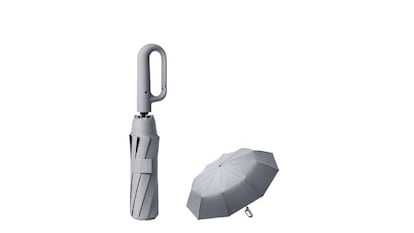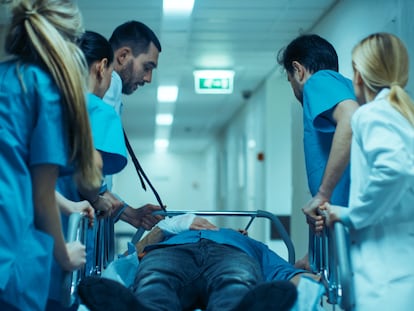Cable de EE UU que analiza la muerte del expresidente de Chile Eduardo Frei Montalvo
La embajada en Santiago informa el 11 de diciembre de 2009 sobre el proceso judicial abierto cuatro días antes contra seis individuos acusados de matar al padre de Eduardo Frei en 1982
| ID: | 239545 |
| Date: | 2009-12-11 20:22:00 |
| Origin: | 09SANTIAGO937 |
| Source: | Embassy Santiago |
| Classification: | CONFIDENTIAL |
| Dunno: | 09SANTIAGO934 |
| Destination: | VZCZCXRO4146 OO RUEHAO RUEHCD RUEHGD RUEHHO RUEHMC RUEHNG RUEHNL RUEHRD RUEHRS RUEHTM DE RUEHSG #0937/01 3452022 ZNY CCCCC ZZH O R 112022Z DEC 09 FM AMEMBASSY SANTIAGO TO RUEHC/SECSTATE WASHDC IMMEDIATE 0416 INFO WESTERN HEMISPHERIC AFFAIRS DIPL POSTS RHEHAAA/NATIONAL SECURITY COUNCIL WASHINGTON DC RHMFISS/DEPT OF JUSTICE WASHINGTON DC RUEAIIA/CIA WASHINGTON DC RUEHPH/CDC ATLANTA GA RUEKJCS/SECDEF WASHINGTON DC |
C O N F I D E N T I A L SECTION 01 OF 04 SANTIAGO 000937 SIPDIS AMEMBASSY BRIDGETOWN PASS TO AMEMBASSY GRENADA AMEMBASSY OTTAWA PASS TO AMCONSUL QUEBEC AMEMBASSY BRASILIA PASS TO AMCONSUL RECIFE E.O. 12958: DECL: 2019/12/11 TAGS: PGOV, PHUM, KCRM, CI SUBJECT: CHILE: Six Charged in Death of Former Chilean President Eduardo Frei Montalva REF: SANTIAGO 934 CLASSIFIED BY: Laurie Weitzenkorn, A/DCM, State, US Embassy Santiago; REASON: 1.4(B), (D) 1. (SBU) Summary: On December 7, Judge Alejandro Madrid charged six individuals with assassinating former President Eduardo Frei Montalva in 1982. Frei, who is the father of the current presidential candidate Eduardo Frei Ruiz-Tagle, died ostensibly of a bacterial infection after undergoing routine surgery. USG laboratory tests conducted to date have found no evidence of the poisoning that Judge Madrid alleges, though some of the substances alleged to have been used cannot be detected via laboratory tests. Even when a judicial decision is eventually reached in the case, Frei's death--like many other events surrounding the Allende and Pinochet governments--is likely to remain controversial, with Chilean opinions about the matter based more on ideology than fact. End Summary. Outline of an Alleged Assassination --------------------------------------------- - 2. (U) On December 7, Judge Alejandro Madrid charged six individuals in the 1982 death of former president Eduardo Frei Montalva. President Frei, who was 71 years old at the time of his death, was admitted to Clinica Santa Maria in Santiago for a routine hernia operation. Despite his overall good health, Frei died on January 22, 1982, ostensibly of a bacterial infection incurred during the surgery or his subsequent hospitalization. Frei was the leading figure in the opposition to military dictator Pinochet, and his unexpected death, combined with other political assassinations, led Frei's family and others to suspect that he was murdered. (Note: Eduardo Frei Montalva was president of Chile from 1964-70. He is the father of current presidential candidate Eduardo Frei Ruiz-Tagle, who served as president from 1994-2000. End Note.) 3. (U) Judge Madrid's report alleges that Frei was slowly poisoned with thalium and mustard gas over a period of months. These substances allegedly weakened his immune system to the point that he was highly susceptible to infection, which Madrid alleges may have been purposefully transmitted. (Frei was also allegedly given a U.S.-manufactured product known as "Transfer Factor" which had not been approved by the FDA, though it is unclear what affects this substance had on his health.) 4. (U) Less than one hour after his death, doctors from the Catholic University Pathological Anatomy Department came to Clinica Santa Maria and performed an autopsy of Frei without the family's consent. The highly unusual autopsy was allegedly performed in the hospital room where Frei died, using a ladder to hang the body upside down in order to drain bodily fluids into the bathtub. Some organs, and in particular those whose chemical compositions might indicate poisoning, were removed and destroyed, and the body was embalmed. Chilean Investigation and Individuals Charged --------------------------------------------- --------------- 5. (U) Judge Madrid charged six individuals in the case. Three individuals are charged with actually committing the murder: --Luis Becerro, Frei's driver, who has admitted to secretly working for the Chilean intelligence service (CNI) and reporting on Frei's activities. --Raul Lillo, a Chilean intelligence agent who allegedly worked in a group dedicated to spying on Frei and other Christian Democrats. SANTIAGO 00000937 002 OF 004 --Patricio Silva, a doctor who allegedly performed surgery on Frei. Two others are charged as accessories: --Helmar Rosenberg, the doctor accused of performing the autopsy and embalming the president. --Sergio Gonzalez, a pathologist who also allegedly participated in the autopsy. One person is charged as an accomplice: --Pedro Valdivia, a doctor who allegedly worked at a medical facility run by the Chilean intelligence service. Madrid's report states that Valdivia entered the room while the autopsy was being performed. 6. (SBU) Judge Alejandro Madrid has been investigating the case since 2002, when the Frei family first learned about the unauthorized autopsy. The case is being conducted under Chile's old inquisitorial justice system, where Judge Madrid is investigator, prosecutor, and judge, and where there is no "trial" with oral arguments. (Note: Chile finalized its penal process reform to implement an oral, accusatorial system in 2005 and only cases occurring after the implementation date are tried under the new system. End note.) Under the system being used for this case, if a judge has brought charges, it is because he believes that he has the evidence to convict. The defendants now have the opportunity to submit judicial inquiries and proposals to try and limit the judge's ability to convict, but the most likely scenario is that Judge Madrid will end up issuing convictions and the defendant can then appeal. Convenient Timing: Charges Filed Six Days Before Election --------------------------------------------- ---------------------- ---------- 7. (SBU) The charges against the six individuals allegedly involved in the murder were filed on December 7--just six days before presidential elections pitting the deceased president's son and namesake, Eduardo Frei Ruiz-Tagle, against conservative candidate Sebastian Pinera (from the Alianza coalition) and independent progressive Marco Enriquez-Ominami. Pinera and Enriquez-Ominami publicly expressed support for the Frei family when the news broke. However, some observers have questioned the timing of the charges, as media attention surrounding the case both emphasizes the image of the beloved and well-respected Eduardo Frei Montalva as well as bringing up the specter of military rule, which is still tied to the Alianza coalition in the minds of some voters. Judge Madrid has denied any political considerations in the timing of the charges. News reports state that the Frei family knew several days in advance that the charges were about to be filed. Press reports also state that Judge Madrid has an affinity for the Christian Democratic party, the party that Eduardo Frei Montalva helped to found and the party of his son, presidential candidate Edurado Frei Ruiz-Tagle. USG Involvement in Testing Frei's Remains --------------------------------------------- ----------- 8. (SBU) The Chilean government, the presiding judge, and an affiliated scientist have requested USG assistance in testing SANTIAGO 00000937 003 OF 004 Frei's remains a number of times, including sometimes by purposefully circumventing official channels. Judge Madrid first formally requested USG assistance in testing remains in 2004. The request was processed as a Foreign Police Cooperation Matter and FBI personnel were present during the exhumation process and ensured chain-of-custody protocols were followed. The Armed Forces Institute of Pathology (AFIP) conducted the testing , which confirmed that the remains were those of Eduardo Frei Montalva, but did not find any alkaline extractable substances. (Note: AFIP did not test for nitrogen mustard, as it is highly volatile and experts know of no analysis that would detect nitrogen mustard in remains 20 years after death. End Note.) Legatt sent a copy of the toxicology report to Judge Madrid. Nonetheless, in 2005, Judge Madrid publicly alleged that he had never received any testing results and accused the USG of failing to cooperate in the investigation. (Legatt later sent another copy of the toxicology report to Judge Madrid.) 9. (SBU) At a scientific conference in May 2007, Dr. Laura Borgel, a scientist at the University of Chile, discussed the scientific interpretation of recent forensic analyses with Dr. Jose Centeno of AFIP. Dr. Centeno offered to informally collaborate with Dr. Borgel in testing the samples at the AFIP lab, as Dr. Centeno's lab did not have the capability to do so. (Judge Madrid later told Legatt that Dr. Borgel never told Dr. Centeno that the specimens she provided belonged to Frei.) This collaboration was not authorized by the US or Chilean government and chain-of-custody and other procedures were not followed. 10. (SBU) In October 2007, Judge Madrid wrote to AFIP requesting the scientific collaboration of Dr. Centeno and AFIP. Post learned of the request when AFIP contacted the FBI Lab Division, who then informed Legatt. In a subsequent meeting with Legatt, Judge Madrid explained that he had purposefully tried to circumvent the need for additional authorization from the Supreme Court by not sending his letter through normal diplomatic channels. Legatt encouraged Madrid to make his request through proper channels. He never did, though in August 2008 Madrid used a diplomatic note to ask AFIP to agree to his October 2007 letter to AFIP requesting assistance. Ultimately, the State Department sent a diplomatic note to the Chilean MFA on January 9, 2009 along with a letter from Dr. Centeno to Dr. Borgel explaining that Dr. Centeno's informal testing found that metals, including thallium, were present only at background levels. 11. (SBU) U.S. involvement in the investigation took another strange turn in October 2009 when two Chilean Policia de Investigaciones (PDI) officers assigned to the Frei case attempted to speak with officials from the Centers for Disease Control (CDC) in Atlanta. The officers wanted to know if the CDC sent strains of "clostridium botulinum" (toxin or antidote) to the Chilean Institute of Public Health in 1981 or 1982. The officers requested the meeting with the CDC through the Pan-American Health Organization (PAHO) rather than through a U.S. law enforcement agency, creating another situation where Chilean authorities did not follow proper protocols. After consulting with Post and WHA/BSC, the CDC declined to meet with the Chilean officers because they did not follow established rules for arranging such a meeting. The State Department's Chile desk officer verbally notified the Chilean Embassy in Washington about the need to follow proper channels when conducting investigations and Post's Legatt discussed the issue with the PDI officials. The Death of Eduardo Frei Montalva: Ghost Story or Assassination? --------------------------------------------- ---------------------- ---------------------- 12. (C) Comment: While Judge Madrid's charges will likely SANTIAGO 00000937 004 OF 004 eventually lead to a final judicial ruling about the guilt or innocence of the six men accused of participating in the death of Eduardo Frei Montalva, it seems very possible that no national consensus will ever be reached on how the former president died. Chilean intelligence agents assassinated or attempted to assassinate a number of opposition political figures, including Carlos Prats (pro-Allende Army Commander-in-Chief who was killed by a car bomb in Buenos Aires); Orlando Letelier (former Chilean Ambassador to the US who was killed by a car bomb in Washington, DC); and Bernardo Leighton (prominent opposition politician who was shot during an attempted assassination in Rome). In addition, the intelligence service is known to have secretly operated laboratories dedicated to developing chemical and biological agents to be used in targeting political enemies. Within that scenario, and given the formerly good health of the president and his role leading opposition to the Pinochet regime, it is easy to see why his family and supporters suspect that he was murdered. And Judge Madrid may have additional evidence which post is not aware of to support this conclusion. 13. (C) On the other hand, at present the Embassy is not aware of any direct evidence indicating foul play. Official tests conducted by AFIP and unofficial tests by Dr. Centeno have not shown toxic levels for any of the elements tested. Given the extremely long time since Frei's death and the destruction of some key organs, forensic science may not be able to provide definitive evidence whether Frei was murdered. Chile's tragic recent history continues to divide its people, and the death of this emblematic president seems destined to be yet one more area in which the full truth may never be known. End Comment. SIMONS |
Traducción automática. Puede que el texto traducido no sea fiel al original
Tu suscripción se está usando en otro dispositivo
¿Quieres añadir otro usuario a tu suscripción?
Si continúas leyendo en este dispositivo, no se podrá leer en el otro.
FlechaTu suscripción se está usando en otro dispositivo y solo puedes acceder a EL PAÍS desde un dispositivo a la vez.
Si quieres compartir tu cuenta, cambia tu suscripción a la modalidad Premium, así podrás añadir otro usuario. Cada uno accederá con su propia cuenta de email, lo que os permitirá personalizar vuestra experiencia en EL PAÍS.
¿Tienes una suscripción de empresa? Accede aquí para contratar más cuentas.
En el caso de no saber quién está usando tu cuenta, te recomendamos cambiar tu contraseña aquí.
Si decides continuar compartiendo tu cuenta, este mensaje se mostrará en tu dispositivo y en el de la otra persona que está usando tu cuenta de forma indefinida, afectando a tu experiencia de lectura. Puedes consultar aquí los términos y condiciones de la suscripción digital.




























































